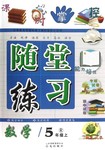“BANG!” the door caused a reverberation (回声).It was just standing there, with father standing on one side , and I on the other side.
We were both in great anger” Never set foot in this house again!” stormed father.With tears welling up in my eyes, I rushed out of the flat and ran along the street.
The street lights were shining, causing rather sad-feeling.I wandered aimlessly.
A young father who held a child in his arms walked past me.I felt as if I saw my childhood from another space: happy and carefree.
But now...I don’t know whether it is because I have grown up or because dad is getting old.We differ in our ways of thinking.He always put his opinions and codes of behavior on me.Whenever I do something wrong, he never admits it.We are just like two people coming from two different worlds.It feels like there is an iron door between us that can never be opened.
I wandered the streets, without a destination in mind.My heart was frozen on this hot summer night.As I walked on there were fewer and fewer people on the streets, until I had only the street lights to keep me company.When I finally reached the high-rise apartment block in which I lived ,I saw that the light was still on.
I thought to myself: “Is father waiting for me, or is he still angry with me?”
In fact, it was nothing.Perhaps, dad was throwing away some of his old stamps.Perhaps he thought they were useless.I never had the courage to tell him that I liked collecting stamps.I can’t stand his outrageous(蛮横的)words: “I can’t throw you away, let alone these old papers ?”
All the lights were off except father’s.
Dad was always like this.Maybe he didn’t know how to express himself.After shouting at me, he never showed any mercy or any moments of regret.After an argument he has the habit of creeping up in my sleep and then tucking me underneath the covers.
This was how he always was.He has been a leader for so long that telling everyone else what to do has become his second nature.
The light was still on.“Am I wrong?” I whispered ,maybe...With the key in hand, I was as nervous as I had ever been.At last, I decided to open the door.As soon as I opened the door tears ran down my cheeks.I suddenly realized that the iron door that I had imagined between us did not exist at all.Love—it second to none.
小题1:Decide which is the best order of the following according to what happened in the passage.
a.I opened the door and entered the house.
b.Sadly I ran out into the street.
c.I reached the place where I lived and saw my house still brightly lit.
d.I thought of my father’s kindness towards me.
e.I walked about in the street without any aim.
| A.b,e,d,c,a | B.b,e,c,d,a | C.b,e,a,c,d | D.b,e,c,a,d |
小题2:What made the writer think of his childhood ?
| A.The sight of the street lights. |
| B.The sight of the empty street. |
| C.The sight of a father with a child in his arms. |
| D.The sight of light in his own house. |
小题3:Why do you think the father often shouts at his son ?
| A.perhaps the father is getting older and older. |
| B.perhaps the son has already grown up. |
| C.perhaps they never agree with each other. |
| D.perhaps the father has got used to doing that. |
小题4:What conclusion can you come to after reading the passage ?
| A.The father treats his son in an unfair way. |
| B.The father is actually kind to his son. |
| C.The father is neither kind nor cruel to his son. |
| D.The father is always finding fault with his son. |



 优百分课时互动系列答案
优百分课时互动系列答案 开心蛙状元作业系列答案
开心蛙状元作业系列答案 课时掌控随堂练习系列答案
课时掌控随堂练习系列答案